MercoPress. South Atlantic News Agency
Tag: Dilma Rousseff
-
Tuesday, July 23rd 2013 - 07:54 UTC
Despite papal blessings, Brazil further cuts spending and growth forecast
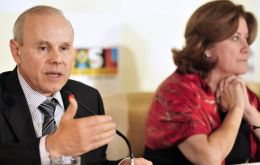
Brazil is cutting spending for the second time in two months to help meet its fiscal target as it forecasts slower growth this year which was also confirmed according to the latest Central Bank survey. The economic data was announced while Brazil had its eyes and ears in Rio do Janeiro to receive Pope Francis.
-
Friday, July 19th 2013 - 06:29 UTC
Pope Francis wants direct contact with the crowds when he visits Brazil next week

Pope Francis will not use bullet-proof ‘Pope-mobiles’ on his visit to Brazil next week to allow him more direct contact with crowds despite the security risks, according to a Vatican release.
-
Tuesday, July 16th 2013 - 17:15 UTC
Uruguay presses for EU/Mercosur talks fearing loss of tariff benefits
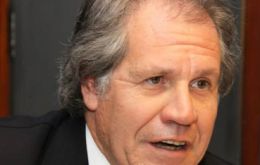
Uruguay needs a quick resumption of Mercosur/European Union trade and cooperation talks because at the end of the year expire a number of tariff benefits for Uruguayan exports, revealed Foreign minister Luis Almagro.
-
Tuesday, July 16th 2013 - 05:48 UTC
Brazil expects president-elect Cartes accepts the return of Paraguay to Mercosur
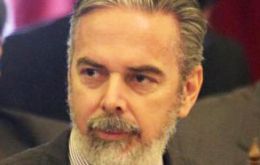
Brazil Foreign minister Antonio Patriota said he expects that Paraguay president-elect Horacio Cartes will accept the return to Mercosur following his taking office ceremony scheduled for next August 15.
-
Friday, July 12th 2013 - 19:22 UTC
Rousseff bites back to protests: highway-blocking banned and organizers will be fined
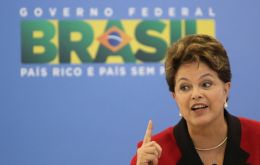
Brazilian president Dilma Rousseff reacted swiftly to the latest national stoppage saying that her government will not tolerate protests blocking highways or streets and with the Ministry of Justice will draft rules to fine those organizations responsible for such actions.
-
Friday, July 12th 2013 - 08:28 UTC
Despite US ‘spying’ Rousseff’s state visit to Washington is still on, says Brazilian congress
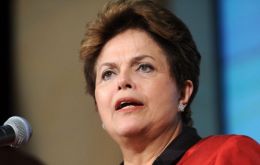
Disclosures alleging that the United States has collected data on billions of telephone and email conversations in Brazil will not affect Brazil-U.S. relations, said the head of the country’s joint congressional committee on intelligence.
-
Tuesday, July 9th 2013 - 00:09 UTC
Brazil drops the idea of Cuban doctors and will hire physicians from Spain and Portugal
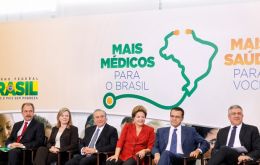
The Brazilian government, under pressure to improve public health services, has dropped plans to import a contingent of Cuban doctors and is instead looking to hire physicians in Spain and Portugal, the Health Ministry said on Monday.
-
Tuesday, July 9th 2013 - 00:01 UTC
Brazilian Congress wants to question ambassador about US surveillance in the country
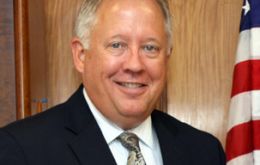
Lawmakers in Brazil said Monday they want to question Washington's ambassador here about revelations that the United States has collected and stored the e-mail and telephone records of millions of Brazilians.
-
Wednesday, July 3rd 2013 - 04:43 UTC
Brazil's Rousseff pushes political reform to quell discontent

President Dilma Rousseff sent Congress reform proposals on Tuesday intended to make Brazilian politics more representative in a bid to recoup popularity she lost in a wave of angry protests against the country's political establishment.
-
Wednesday, June 26th 2013 - 05:13 UTC
Brazil’s top Justice suggests trimming the influence of political parties and an end to cupola deals
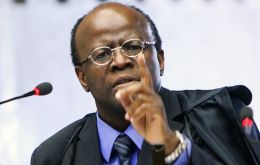
The president of Brazil’s Supreme Federal Tribunal (Supreme Court) Joaquim Barbosa argued in favour of diminishing the influence of political parties in decisions referred to the Brazilian people’s interest and supports the introduction of what he called “puffs of popular expression” in the current political system.
